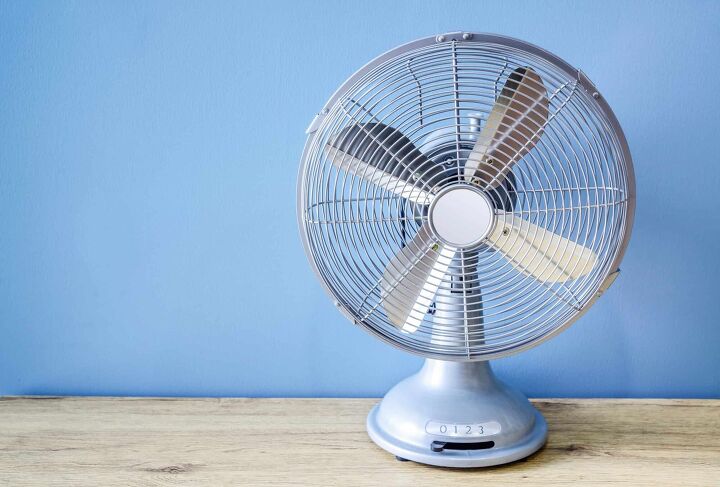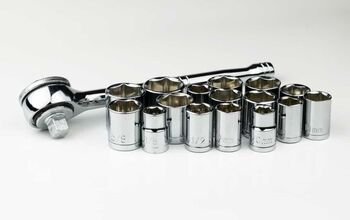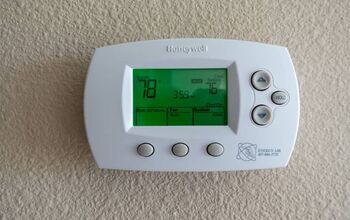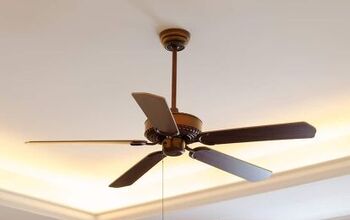What Is The Best Lubricant for Electric Fan Motors?

Most homes will have at least one fan in them. Like with all appliances, fans will require some maintenance once they start getting used regularly. This includes doing things like lubricating their motors to ensure that they still are up and running. Of course, you can’t just use bacon grease on a good fan. So, what can you use, anyway?
There are several good lubricant options that you can choose, but the right one for you will depend on what you are using your fan for as well as the material that the fan is made of. If it’s for keeping an outdoor machine, you may need something like Liberty Oil. Fans that will be used indoors may need something like lubricating silicone to work.
When you’re looking for a good lubricant, you need to take things on a holistic level. It’s not just about choosing the right lubricant for the setting. It’s also about knowing what your fan is made of. This guide will give you a better idea of what you need to use.
What Lubricant Should I Use For An Electric Fan Motor?
There’s some good news and some bad news. The bad news is that you won’t find many (or really any) lubricants on the market that are specifically marketed for electric fans. The good news is that many high-functioning electric motor lubricants will work well with the fans you have.
Each motor will have its own needs, but thankfully, there are a bunch of ways to make sure that you get your electric fan motor in working order. The important thing to keep an eye out for is to get an oil-based lubricant, or a lubricant that’s been cleared for fan motor use. These are some of the most popular ones suggested by top retailers.
For the vast majority of electric fans, you will need to use some form of SAE 20, non-detergent lubricating oil. 3-in-1 is a brand that is known for making huge advances when it comes to lubrication. This time around, 3-in-1 offers up a heat-resistant oil that extends machinery life, keeps things running smoothly, and comes with an easy squeeze bottle ideal for small appliances.
If you have an electric fan that has parts that are prone to corrosion, exposure to water, or other issues, then you might not want to work with your regular SAE. This is a special sprayable oil that helps waterproof your fan’s motor and also sprays on clean.
Dupont’s offering on this list is made for fans that might be near difficult materials like rubber, vinyl, plastic, or metal. It comes with a spray nozzle, so overapplying can happen. Due to its odor, we suggest using this for outdoor fan motors only.
Another alternative to the highly suggested SAE 20 non-detergent oil comes from a little-known company named Supco. This old school company has a specially-developed lubricant that is designed to be heat-resistant, long-lasting, and easy to apply. If you need to squeeze into some tight spaces, the telescoping tip will make it a breeze.
Many people have used this turbine oil for AC motors, ceiling fans, as well as other types of fans. It won’t gum up, won’t stain, and is remarkably affordable. Thankfully, it works well for both indoor and outdoor fan motors.
Yes, yes, we know that this says that it’s meant for sewing machines. However, this isn’t just for sewing machines. Liberty Oil made this lubricant for just about every type of small motor you would find inside your home. As you can tell from the bottle, Liberty Oil is designed with petite machines in mind.
If you have a hard time getting into tiny corners and need quality lubrication, you are going to appreciate this bottle’s easy-squeeze build and its needle tip. For tiny fans that need a little TLC, it’ll be hard to get any better.
Let’s go back to using the normal fan motor lubricant, shall we? This offering by mechanical lubricant company Accel fits the bill for what a good fan motor oil should be. Of course, it also comes with the versatility that other SAE 20 types have too.
This motor oil comes with cooling technology and boasts a high flash point. So if you want to keep your fan engine running as smoothly as possible, this is a safe bet. With that said, it is sold in a much larger quantity than most ceiling fans will ever need. If that’s overkill for you, we totally understand.
Admittedly, it can feel a little risky to buy a lubricant oil when you aren’t sure if it’s actually made for fan oil. At least, that’s what it can feel like if you’re just reading a label. Liquid Bearings gets that hesitation that you might feel, which is why they have engineered a 100% synthetic oil specially made for fans.
This oil works well with both indoor and outdoor fan motors, and also comes with a needle tip for easy application. The rave reviews and low price point alone make it worth a look-see, at the very least.
How Much Oil Do I Need For A Fan Motor?
Assuming that you have a standard oscillating fan motor that you’re shopping for, you won’t need a lot to get your fan in ship shape. Most fans only need a couple of drops in key points to get moving. If you put too much oil in your fan, it’s possible that you could potentially clog your system and cause a malfunction.
It’s easy to get tempted by larger quantities of oil for sale, but the truth is that less is more. Unless you have a lot of tiny machine items that need to be lubricated, you are better off just buying a tiny squeeze bottle.
Is There Any Way To Tell Which Lubricant Works Best With My Fan Motor?
It all depends on the type of motor and what you’re trying to lubricate. Most major appliances that have a fan as one of their parts will mention the best lubrication for the fan in their owners’ manuals. If you’re just looking for something that will keep a small handheld fan lubricated, then you might need to go for a generic product.
Related Questions
Can I use WD-40 on a ceiling fan?
Nope. WD-40 might be considered an engineer’s favorite friend, but it’s not good for ceiling fans. Ceiling fans need to have an oil-based lubricant in order to work. Using WD-40 on it will damage the motor instead of loosening up stuck parts. If at all possible, stick to oil-based lubricants or whatever your user manual suggests you use.
Do fans actually work?
Compared to an AC unit, they might not be that effective, but they still are somewhat effective. It’s all about the kind of heat that you’re dealing with. Fans are best for lowering the temperature of your skin by blowing wind across it. If you were hoping to cool down your room with a fan, you might be out of luck.
Does putting a large bucket of ice in front of a fan work?
Believe it or not, this old school method of keeping cool is fairly effective at cooling down a room and also keeping your body cool. The issue, of course, is that ice will melt and that it may be a little space-consuming. If you’re okay with that, then there’s a good chance that you might want to use it next time a heatwave strikes.
Can a fan catch on fire in the middle of the night?
You might have heard rumors of fans catching fire while homeowners are asleep. The truth is that fans can catch fire if they are overheating and have bad circuitry. However, the actual chances of this happening are extremely low. Most fire safety experts agree that keeping a fan on overnight is not going to be a seriously dangerous endeavor.
Related Guides

Ossiana Tepfenhart is an expert writer, focusing on interior design and general home tips. Writing is her life, and it's what she does best. Her interests include art and real estate investments.
More by Ossiana Tepfenhart



























